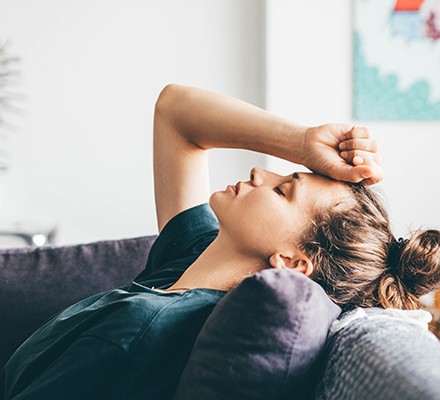
Image from: https://www.liveactiveclinic.com.au/exercising-can-reduce-stress-levels/
Introduction:
In today’s fast-paced world, stress has become an unwelcome companion for many. The good news is that one of the most effective remedies is also one of the simplest: exercise. Engaging in physical activity not only promotes physical health but also serves as a powerful tool for stress relief. Let’s explore how exercise works as a stress reliever, drawing insights from reputable sources.
The Science Behind Exercise and Stress Relief
Exercise has a profound impact on our body and mind. According to the Mayo Clinic, physical activity boosts the production of endorphins, the body’s natural mood lifters. These chemicals help alleviate pain and reduce stress, contributing to what is often referred to as the “runner’s high.” This feeling can lead to a more positive outlook on life, making it easier to cope with stressors.
Harvard Health echoes this sentiment, emphasising that exercise can help manage anxiety and depression. Regular physical activity can increase your sense of well-being and self-worth, which can be particularly beneficial during challenging times. It also promotes better sleep, a vital factor in managing stress levels. The link between sleep and stress is significant; poor sleep can exacerbate stress, creating a vicious cycle. By incorporating exercise into your daily routine, you can improve both your sleep quality and your ability to handle stress.
Physical Activity as a Coping Mechanism
Stress often triggers a fight-or-flight response in our bodies, leading to physical symptoms like increased heart rate and muscle tension. Engaging in exercise serves as a healthy outlet for this energy. To reap the benefits of exercise as a stress reliever, it’s essential to create a routine that fits your lifestyle. Start with small, manageable goals. Whether it’s a daily walk, a weekly Pilates class, or a couple of sessions at the gym, consistency is key. Over time, you’ll likely notice not only a reduction in stress levels but also an improvement in overall physical and mental health.
Setting aside time for exercise can also help establish a sense of structure in your day, making it easier to navigate stressful moments. Incorporating mindfulness techniques during your workouts can enhance the stress-relieving effects. Focus on your breath, be present in the moment, and appreciate the physical sensations of movement.
The National Center for Biotechnology Information (NCBI) also notes that exercise can reduce levels of the body’s stress hormones, such as adrenaline and cortisol. This reduction helps the body return to a state of equilibrium, promoting overall health.

Image from: https://www.bbcgoodfood.com/health/wellness/stress-diet-can-foods-help
Types of Exercises That Help
Different forms of exercise can serve different purposes in stress relief. Here are a few types:
- Aerobic Exercise: Activities like jogging, cycling, or dancing can elevate heart rates and increase endorphin levels, leading to immediate stress relief.
- Pilates and Stretching: These practices focus on deep breathing and mindfulness, which can help calm the mind and reduce tension in the body.
- Strength Training: Lifting weights not only builds physical strength but also boosts confidence, which can be empowering during stressful times.
- Outdoor Activities: Spending time in nature while engaging in physical activity can further enhance the benefits, as the combination of fresh air, sunlight, and movement is known to elevate mood.
Building a Routine
To reap the benefits of exercise as a stress reliever, it’s essential to create a routine that fits your lifestyle. Start with small, manageable goals. Whether it’s a daily walk, a weekly Pilates class, or a couple of sessions at the gym, consistency is key. Over time, you’ll likely notice not only a reduction in stress levels but also an improvement in overall physical and mental health.
Conclusion
Incorporating regular exercise into your routine can be a transformative approach to managing stress. From boosting endorphin levels to promoting better sleep and overall well-being, the benefits of physical activity are undeniable. So, whether you prefer a brisk walk in the park or an intense gym session, remember that moving your body can be one of the most effective ways to combat stress. Embrace the power of exercise, and take a step toward a calmer, healthier you.
Best Health Clinic Near Me:
Our Clinic located in Baulkham Hills offers a wide range of practices such as group classes, sports physiotherapy, acupuncture, chiropractic appointments, massage therapy, rehabilitation appointments and podiatry to help each and every one of our patients with their individual and unique needs. If you are looking to join an exercise community, call our Sydney Hills District Clinic on 02 9639 7337 or book online to create an appointment with our expert sport and exercise Baulkham Hills Chiropractor and massage therapists.

References
- Mayo Clinic. “Exercise and Stress.” (https://www.mayoclinic.org/healthy-lifestyle/stress-management/in-depth/exercise-and-stress/art-20044469)
- Harvard Health. “Exercising to Relax.” (https://www.health.harvard.edu/staying-healthy/exercising-to-relax)
- Healthline. “Exercise for Stress Relief.” (https://www.healthline.com/health/heart-disease/exercise-stress-relief)
- National Center for Biotechnology Information. “Effects of Exercise on Stress.” (https://pmc.ncbi.nlm.nih.gov/articles/PMC4013452/)


